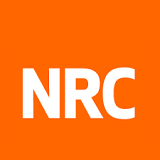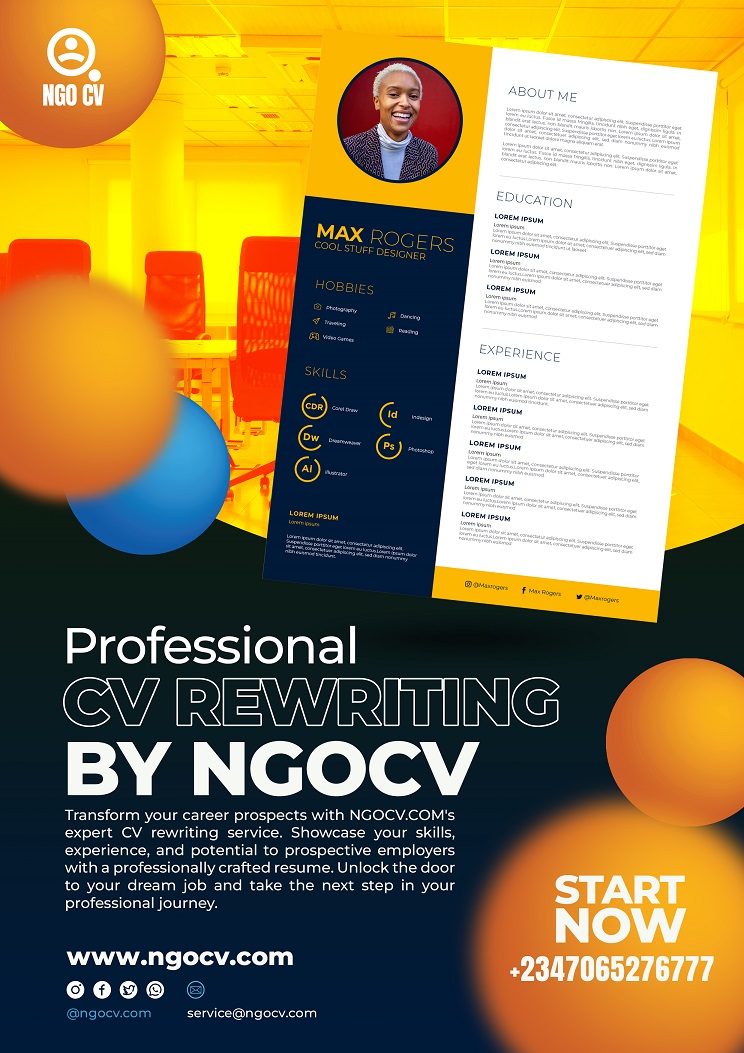
The Norwegian Refugee Council (NRC) is an independent, humanitarian, international Non-Governmental Organization that works to protect the rights of the displaced and vulnerable people during crisis. NRC provides assistance in the areas of Water Sanitation and Hygiene (WASH), Education, Food Security and Livelihoods, Shelter, Information Counseling and Legal Assistance (ICLA) and Camp Management.
Applications are invited from suitable Firms / Consultants for:
Title: Consultancy for Evaluation of ISoLT – Supporting Social Inclusion and Local Governance in the areas most impacted by the Lake Chad Crisis
Locations: (Abuja and Borno) Nigeria & Cameroon
Details
- NRC seeks expressions of interest from both individuals and firms for a consultancy on evaluation Consultancy for Evaluation of ISoLT – Supporting Social Inclusion and Local Governance in the areas most impacted by the Lake Chad Crisis.
- The evaluation seeks to assess the project performance by examining its delivery/outcomes a well as the quality of its implementation. As a change-oriented evaluation approach, it is especially attuned to assessing any discrepancies between the logic model and outcomes of the project and what is happening in reality, to analysing strengths and weaknesses, to uncovering obstacles, barriers or unexpected opportunities, and to generating understandings about how the project could be better implemented in the future or in another similar context.
Project Context
- It is estimated that 90% of the population in need in the Lake Chad Basin (LCB) region relies on humanitarian aid as their only means of survival. After ten years of instability and displacement, programs to build resilience of the population are essential. The affected population requires particular support in addressing long-term needs such as livelihoods, employment opportunities, and access to education and land.
- As the conflict takes on a multidimensional form, the integration of civil documentation rights and House, Land and Property (HLP) issues with other structural issues such as food security and livelihoods as well as access to education is an essential step to strengthening local governance and a prerequisite for sustainably strengthening the resilience of people affected by crisis. The commitments expressed by the four Lake Chad Basin (LCB) governments during the 2016 Abuja Action Statement confirm the need for sustainable solutions, at local and regional level, for the populations affected by the conflict. The triple humanitarian development-peace nexus approach must involve the active participation of local actors and decentralised and governmental authorities. Development perspectives are interdependent on the structures and systems of political governance in both countries. A common regional strategy must therefore be made by strengthening governance at the local level.
- As such both in Cameroon and Nigeria, NRC is primarily working with populations affected by the Lake Chad crisis, including the most vulnerable in host communities, IDPs, returnees, and refugees. NRC targets areas that continue to be severely impacted by protection, livelihoods, food security and education issues, most of which are hard-to-reach areas. The goal of the project is to support displacement-affected populations towards durable solutions through improved governance in areas affected by cross-border displacement. This will be achieved through four integrated intervention axes: (1) strengthening access to civil and legal identity, (2) strengthening social cohesion and access to land rights (3) supporting the economic recovery of households and (4) securing access to quality education, especially for girls.
- The first axis ensures a system of Information, Counselling and Legal Assistance on civil documentation and HLP rights for the most marginalised people who do not have access to public information channels.
- The second axis is intended to improve social cohesion and access to land at community level by building local capacity on conflict resolution processes, mechanisms and tools.
- The third axis aims at strengthening the resilience and economic security of vulnerable households. While in the fourth axis the focus is to improve access to a safe and quality education system, in particular for girls.
- The program is therefore concentrating on the border areas between the two countries, which are transit and settlement areas for people fleeing their homes. It is being implemented in Mubi (Adamawa state), Gwoza and Pulka (Borno state) in Nigeria and in Mayo Sava (Mora, Kolofata), Mayo Tsanaga (Mokolo, Mayo Moskota), and Logone-et-Chari (Makary, Fotokol) Division in Cameroon.
- After more than two years of implementation, NRC is undertaking a final evaluation (covering both outcomes assessment and operational evaluation dimensions) to assess results accruing from the interventions and generate evidence about the performance and the extent to which the benefits can be sustained.
Purpose of the evaluation and intended use:
- The evaluation seeks to assess the project performance by examining its delivery/outcomes a well as the quality of its implementation. As a change-oriented evaluation approach, it is especially attuned to assessing any discrepancies between the logic model and outcomes of the project and what is happening in reality, to analysing strengths and weaknesses, to uncovering obstacles, barriers or unexpected opportunities, and to generating understandings about how the project could be better implemented in the future or in another similar context.
- Assessing to what degree the project has been successful in promoting a cross border approach and increasing experience sharing and learning will be part of the evaluation.
- The intended direct and indirect users of the evaluation are: advocacy, Implementing Partners, Project teams, Core Competencies Specialists, Heads of programmes, Regional Advisors, Monitoring and evaluation units, key national (ministries, etc) and regional stakeholders in Nigeria and Cameroon, and the donor.
Scope and lines of inquiry:
- The evaluation will cover project intervention areas and the whole duration of the project since March 2019, in Cameroon and Nigeria. It will consider the strategic and operational aspects that contributed to achievements. Specifically, it will focus on the following elements:
- Analysis of the relevance of the objectives, indicators, activities, implementation strategy and approaches used;
- Measuring and analysis of the level of achievement of the results (outcomes) including processes; focus will be put on the analysis of the deviations between project initial forecasts and progress achieved;
- Identification of unintended positive or negative effects resulting from the implementation of the project;
- Identification and analysis of external factors (social, economic, political, geographical, cultural) that participated in the project implementation and their effect/impact on results and processes.
- The evaluation is intended to assess the project’s performance against the following criteria: (i) relevance, (ii) efficiency, (iii) effectiveness, (iv) impact, (v) sustainability, (vi) Non-discrimination and gender (vii) replicability and scalability.
- However, we are conscious that the timing of the evaluation does not lend itself to a consideration of (iv) and (v), given that some outcomes will take time to manifest. As such, the evaluation is expected to focus on assessing the likely future impacts and sustainability of the project, as well as ideally proposing a reflective practice approach and a ‘resource light’ approach that can be used for capturing future impacts.
Relevance:
- To what extent has the project been aligned to NRC priorities, policies and needs of beneficiaries?
- To what extent was it designed according to local needs/priorities of the countries involved?
- To what extent did it take into account different needs and priorities of boys/men and girls/women? How was the project adapted to meet these various needs?
Effectiveness:
- How did the project contribute to strengthening the capacity of beneficiaries (business skills, etc)?
- How did the knowledge and skills acquired through the project have been used?
- How successful was the programme in improving the quality of identification-civil documentation/legal identity, access and learning outcomes, and income of targeted households?
- Are there underlying factors beyond the project’s control that influenced its performance?
- To what extent has the project contributed to an increase in confidence of communities towards traditional/formal authorities. To what extent is the change similar for women/girls and men/boys?
Impacts:
- To what extent is the programme contributing to improving the resilience of the most vulnerable displacement-affected populations, especially women, girls and youth? What are the major contributing factors?
Sustainability:
- To what extent did the project create conditions enabling the changes on children, women, men, and community actors to continue?
- To what extent does the project theory (logic model) enable it to be sustainable?
- To what extent women/girls and men/boys took ownership of actions and works?
- To what extent is the project compatible with local perceptions?
- How has local knowledge been valued in the implementation of the project?
Efficiency:
- To what extent the resources deployed (time, human, financial, material) justify the results?
- How well are resources being used in the project?
- Non-discrimination-gender equity
- To what extent and how are we delivering appropriate and effective interventions for people with disabilities?
- To what extent did NRC minimise the negative consequences of its interventions and ensure safety, dignity and wellbeing (and equal access) for women/girls and men/boys?
Replicability and scalability:
- To what extent will the project work in a different context?
- What would happen if we scale up in one context rather than another?
Timeframe:
- This evaluation will start in December 2021 and the estimated number of working days is 40 working days to complete the evaluation.
Evaluation Consultant Team
NRC seeks expressions of interest from both individuals and firms for this assignment:
Consultants Must Have:
- Advanced University Degree or equivalent in Humanitarian/Development Studies, Social Sciences, Statistics or other fields related to the provision of Humanitarian Assistance in Education, Livelihoods and Food Security, Information Counselling and Legal Assistance, Community Development and Humanitarian Coordination;
- Good knowledge of data collection methods using tablets and CAPI systems, data analysis and presentation of results;
- Good knowledge of outcomes evaluation approaches especially quasi-experimental as well as participatory mixed methods;
- Experience in planning, implementation, monitoring and especially in evaluation of programs in humanitarian settings;
- Good knowledge of community development mechanisms; gender and equity;
- Good French and English communication, writing and synthesis skills;
- Knowledge of local cultures and languages and social, economic and political background of Cameroon and Nigeria –the Lake Chad region is an asset. The composition of the team must be balanced to enable an exhaustive coverage of the various aspects of the evaluation set out in these terms of reference, including cross-cutting issues.
- Have the capacity to deliver result with COVID 19 context and restrictions.
Application Process and Requirements
The technical and financial proposals of up to 6 pages maximum (excluding annexes) should include the following:
- Proposed methodology, including a tentative workplan;
- Composition of the evaluation team;
- CV of the member(s) of the evaluation team including references;
- Detailed budget of the offer (consultant(s) will cover the costs for local travel, food, accommodation, etc.);
- An extract (3-5 pages) from reports written for similar missions;
- A cover letter with the following information: a description of how their skills, qualifications and experience are relevant to the requirements of the assignment, a list of previous evaluations that are relevant to the context and subject of this assignment, a statement confirming their availability to conduct the assignment and the budget (please indicate currency of amount), a statement confirming that the candidate has no previous involvement in the delivery of the project or any personal relationship with anyone engaged in it.
- Proof of registration (business registration documents and VAT or company tax registration (If the consultant is a sole-trade (self-employed) a confirmation of the status from a certified accountant or the tax authorities is mandatory.
Scope of Bid
- The bid is based on the scope of the assignment as determined in the Bid Data Sheet (Section 2). The instruction to bidders should be read in conjunction with the Bid Data Sheet.
- The successful Bidder will be expected to complete the assignment by the Intended Completion Date specified in the contract to be signed. Failure to do so with result in breach of contract.
Corrupt Practices:
- Norwegian Refugee Council requires Employees, Parties engaged in NRC Activities, including consultants and associated staff, to observe standards of ethics during procurement and the execution of contracts. In pursuit of this, Norwegian refugee Council defines, for the purposes of this provision, the terms set forth below as follows:
- “Corrupt practice” includes the offering, giving, receiving, or soliciting of anything of value to influence the action of a public official in the procurement process or in contract execution; and
- “Fraudulent practice” includes a misrepresentation of facts in order to influence a procurement process or the execution of a contract to the detriment of the Norwegian Refugee Council, and includes collusive practices among Bidders prior to or after bid submission designed to establish bid prices at artificial, non-competitive levels and to deprive the Norwegian Refugee Council of the benefits of free and open competition;
- In any case where fraud or corruption is identified, NRC will:
- Reject any bids where the Bidder has engaged in corrupt or fraudulent practices in competing for the Contract;
- Remove bidding contractors who engage in fraudulent or corrupt practices, from our prequalified list
- Liaise with District or Government Officials to report if fraudulent or corrupt practices are identified
- Terminate the consultancy activity, without due payment to be made by Norwegian Refugee Council.
- Any communications between a Bidder and the Norwegian Refugee Council related to matters of alleged fraud or corruption must be made in writing and addressed to: [email protected]
Eligible Bidders
- A Bidder shall meet the following criteria to be eligible to participate in NRC procurement of Services:
- The bidder, at the time of bid, is not:
- Insolvent;
- In receivership;
- Bankrupt; or
- Being wound up
- The bidder’s business activities have not been suspended;
- The bidder is not the subject of legal proceedings for any of the circumstances in (b); and
- The bidder has fulfilled his or her obligations to pay taxes and social security contributions. In a case where VAT is included in a bid, a copy of the VAT certificate must accompany the bid. A Bidder, and all parties constituting the Bidder including sub-contractors, shall not have a conflict of interest. All Bidders found to have a conflict of interest shall be disqualified. A Bidder may be considered to have a conflict of interest with one or more parties in this bidding process, if they have a relationship with each other, directly or through common third parties, that puts them in a position to have access to information about or influence on the bid of another Bidder, or influence the decisions of the Norwegian Refugee Council regarding this bidding process
- The bidder, at the time of bid, is not:
- A Bidder whose circumstances in relation to eligibility change during a procurement process or during the execution of a contract shall immediately inform the Norwegian Refugee Council.
- NRC reserves the right to refuse a bid at any time if the bidder or one of its sub-contractors provided material support or resources to any individual or entity that commits, attempts to commit, advocates, facilitates, or participates or is found guilty of fraud, active corruption, collusion, coercive practice, bribery, involvement in a criminal organization or illegal activity, or immoral human resources practices, including but not limited to: child labour, non-discrimination, freedom of association, payment of the legal national minimum wage, and forced labour.
Documents Comprising The Bid
- The bid submitted by the Bidder shall comprise the following:
- Signed and stamped Consultancy’s Biding form in Section 5
- TOR and Pricing proposal or Any other information and documents requested in Section 4.
- Timetable provision Schedule (as in Section 6)
- Consultancy Profile and Previous experience, including Curriculum Vital of personnel to be included (as in Section 7)
- Signed and stamped Supplier Ethical Standards Declaration in Section 8
- All forms must be completed without any alterations to the format, and no substitutes shall be accepted.
- Proof of registration (business registration documents and/or VAT or company tax registration. If the consultant is a sole-trade (self-employed) a confirmation of the status from a certified accountant or the tax authorities is mandatory. For any self-employed person based in European country, a sole-trade certificate/registration document is required. If the sole trade consultant is from the US, a certificate from his/her registered account is sufficient.
- All blank spaces shall be filled in with the information requested.
Bid Validity
- Bids shall remain valid for a period of 90 calendar days after the date of the bid submission deadline as prescribed by Norwegian Refugee Council. A bid valid for a shorter period shall be rejected as non-compliant.
- In exceptional circumstances, prior to the expiration of the bid validity period, the Norwegian Refugee Council may request Bidders in writing to extend the period of validity of their bids. A Bidder must confirm in writing his acceptance of the extension. In case of extension, modification of the bid is not permitted.
Schedule & Deadline For Submission
- Invitation to Bid release: 11:00 am: 11th November, 2021.
- Deadline for request for any clarifications from NRC: 5:00 pm: 24th November, 2021.
- Last date on which clarifications are issued by NRC: 5:00 pm: 26th November, 2021.
- Deadline for submission of tenders (receiving date, not sending date): 5:00 pm: 30th November, 2021.
- Tender opening session by NRC: TBC
- Notification of award to the successful tenderer: TBC
- Signature of the contract: TBC (All times are in the local time of Senegal).
Note: All dates are provisional dates and NRC reserves the right to modify this schedule.
Application Closing Date
5:00 pm: 30th November, 2021 (Dakar Time).
Method of Application
Interested and Eligible Firms / Consultants are requested to submit their bids to: [email protected]clearly indicating “60/NRC-NOT/NG/2021 – Consultancy for Evaluation of ISoLT – Supporting Social Inclusion and Local Governance in the areas most impacted by the Lake Chad Crisis” as the subject of the email.
Click here for more information (MS Document)
Note
- Any request for clarification must be received by NRC in writing at least 4 working days before the deadline for submission of tenders. NRC will reply to bidders’ questions at least 2 working days before the deadline for submission of documentation.
- Costs incurred by the bidder in preparing and submitting the tender proposals will not be reimbursed.




